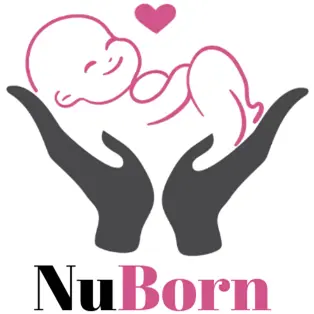Thyroid disorders are a common occurrence in pregnancy, with approximately 5-10% of women developing thyroid dysfunction. It is a well-known fact that thyroid hormone plays a crucial role in the development of the fetus, and as such, it is imperative to monitor and treat thyroid dysfunction during pregnancy to ensure the health of both mother and baby.
At New Born Care Centre (NBCC), we recognize the importance of managing thyroid disorders in pregnant women. Our team of highly trained medical professionals works diligently to provide the best possible care for all our patients. In this blog post, we will discuss how pregnant women with thyroid disorders can ensure a healthy pregnancy and delivery.
Understanding thyroid disorders:
The thyroid gland is responsible for producing thyroid hormones that regulate various bodily functions such as metabolism, heart rate, and temperature. Any abnormality in the thyroid gland can lead to thyroid disorders, which are broadly categorized as hypothyroidism and hyperthyroidism.
Hypothyroidism is a condition where the thyroid gland is unable to produce enough thyroid hormone, while hyperthyroidism is a condition where the thyroid gland produces an excess of thyroid hormone. Both these conditions can have adverse effects on the mother and the developing fetus.
Managing thyroid disorders during pregnancy:
- Regular thyroid function testing: Pregnant women with a history of thyroid dysfunction should undergo regular thyroid function testing to monitor the levels of thyroid hormones in their blood. The frequency of testing may vary depending on the severity of the condition.
- Medication: In cases of hypothyroidism, medication with synthetic thyroid hormone is usually prescribed to maintain adequate levels of thyroid hormones in the blood. In cases of hyperthyroidism, anti-thyroid medication may be prescribed to regulate the levels of thyroid hormones.
- Nutritional support: Adequate intake of iodine, which is essential for thyroid function, is crucial during pregnancy. Pregnant women with thyroid disorders should consult a dietician to ensure that their diet is rich in iodine.
- Regular monitoring of fetal growth: Thyroid disorders during pregnancy can affect the growth and development of the fetus. Regular monitoring of fetal growth through ultrasounds is important to ensure that the baby is growing adequately.
- Delivery planning: In cases where the mother has uncontrolled thyroid dysfunction or other medical complications, the obstetrician may recommend an early delivery to reduce the risk of complications during childbirth.
At NBCC, we understand the importance of managing thyroid disorders during pregnancy. Our team of medical professionals works closely with each patient to develop a personalized care plan that takes into account their specific needs and medical history. We provide regular thyroid function testing and nutritional support to ensure that our patients receive the best possible care.
Smart NICU and High-Resolution Baby Monitoring Camera:
At NBCC, we have state-of-the-art facilities that include a Smart NICU and a High-Resolution Baby Monitoring Camera. Our Smart NICU is equipped with advanced technology that enables us to provide specialized care for premature babies and babies with complex medical conditions. Our High-Resolution Baby Monitoring Camera allows us to monitor the vitals of every bed in the NICU, ensuring that our patients receive round-the-clock monitoring and care.
Conclusion:
In conclusion, managing thyroid disorders during pregnancy is crucial for the health and well-being of both the mother and the baby. At NBCC, we recognize the importance of providing specialized care for pregnant women with thyroid disorders. Our team of highly trained medical professionals works diligently to ensure that our patients receive the best possible care. With our state-of-the-art facilities, including the Smart NICU and High-Resolution Baby Monitoring Camera, we are committed to providing the highest quality of care to our patients.

